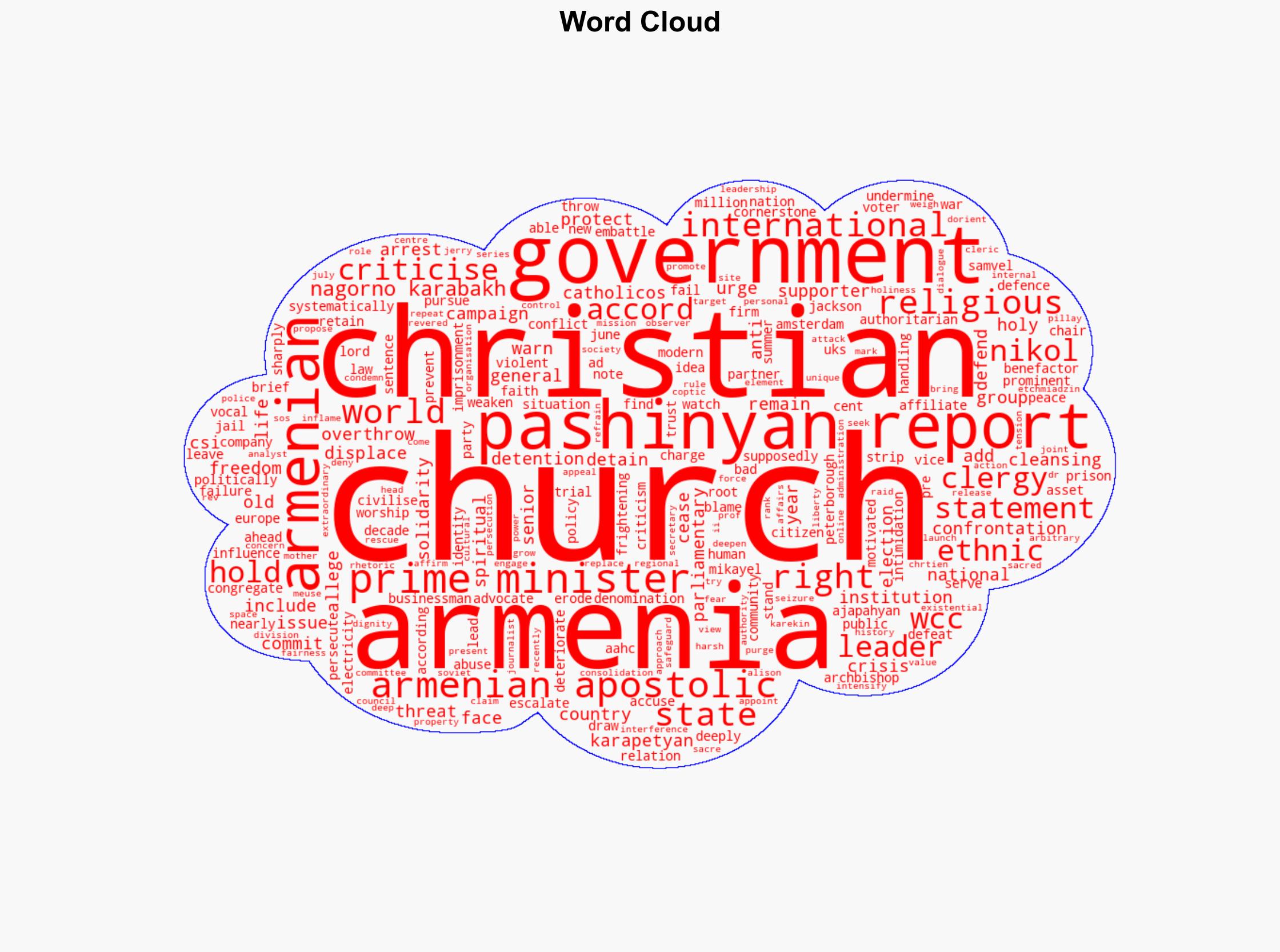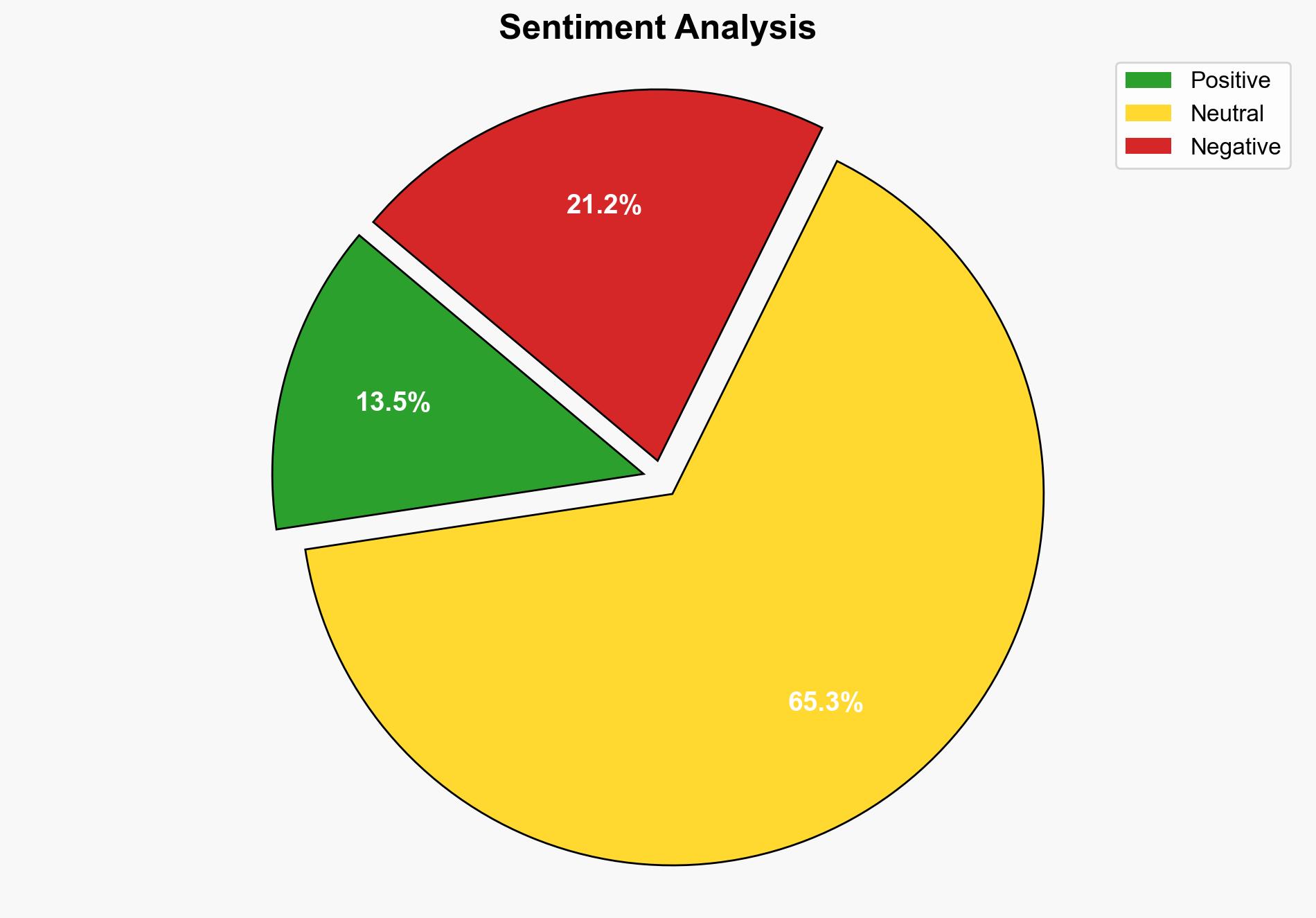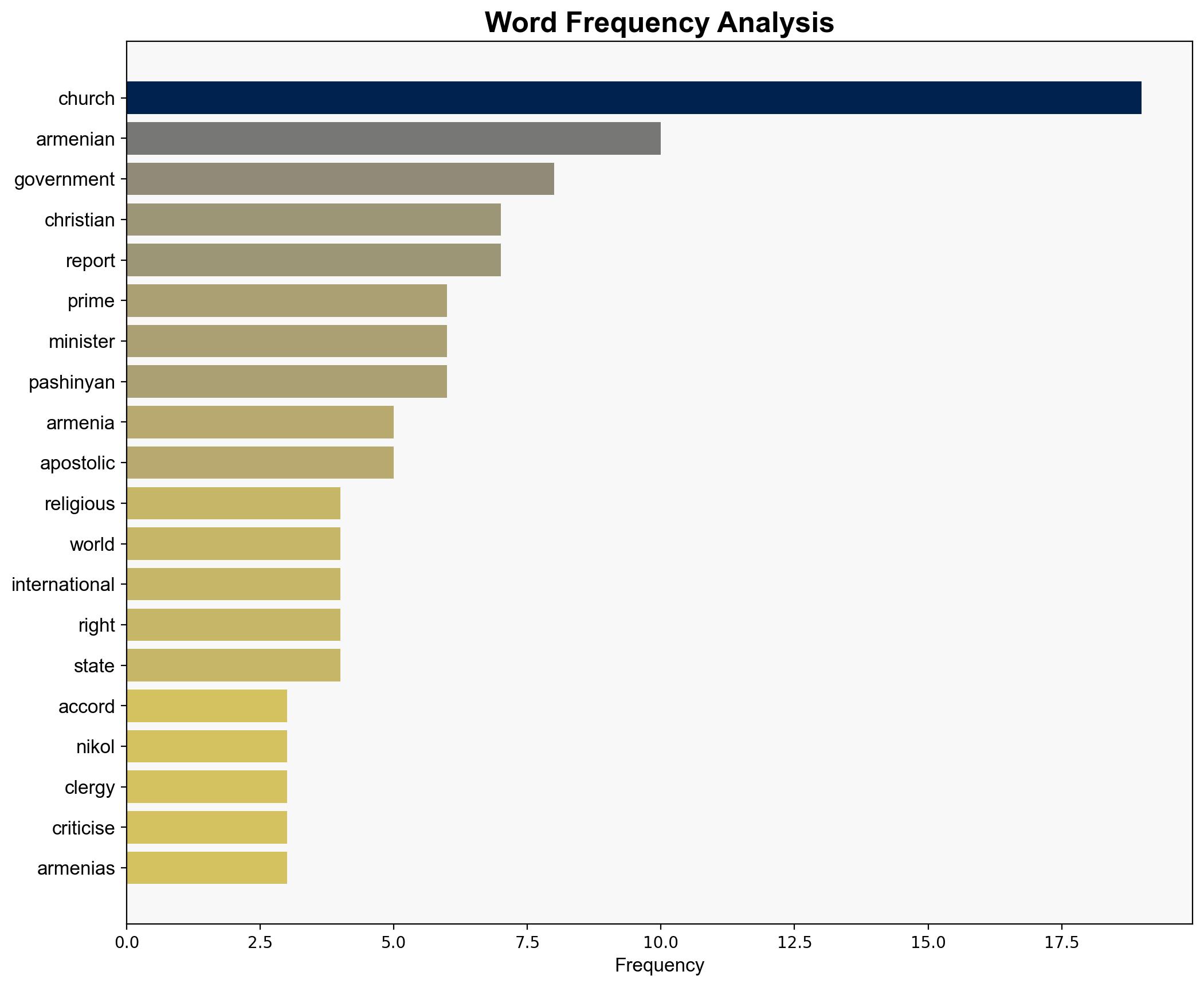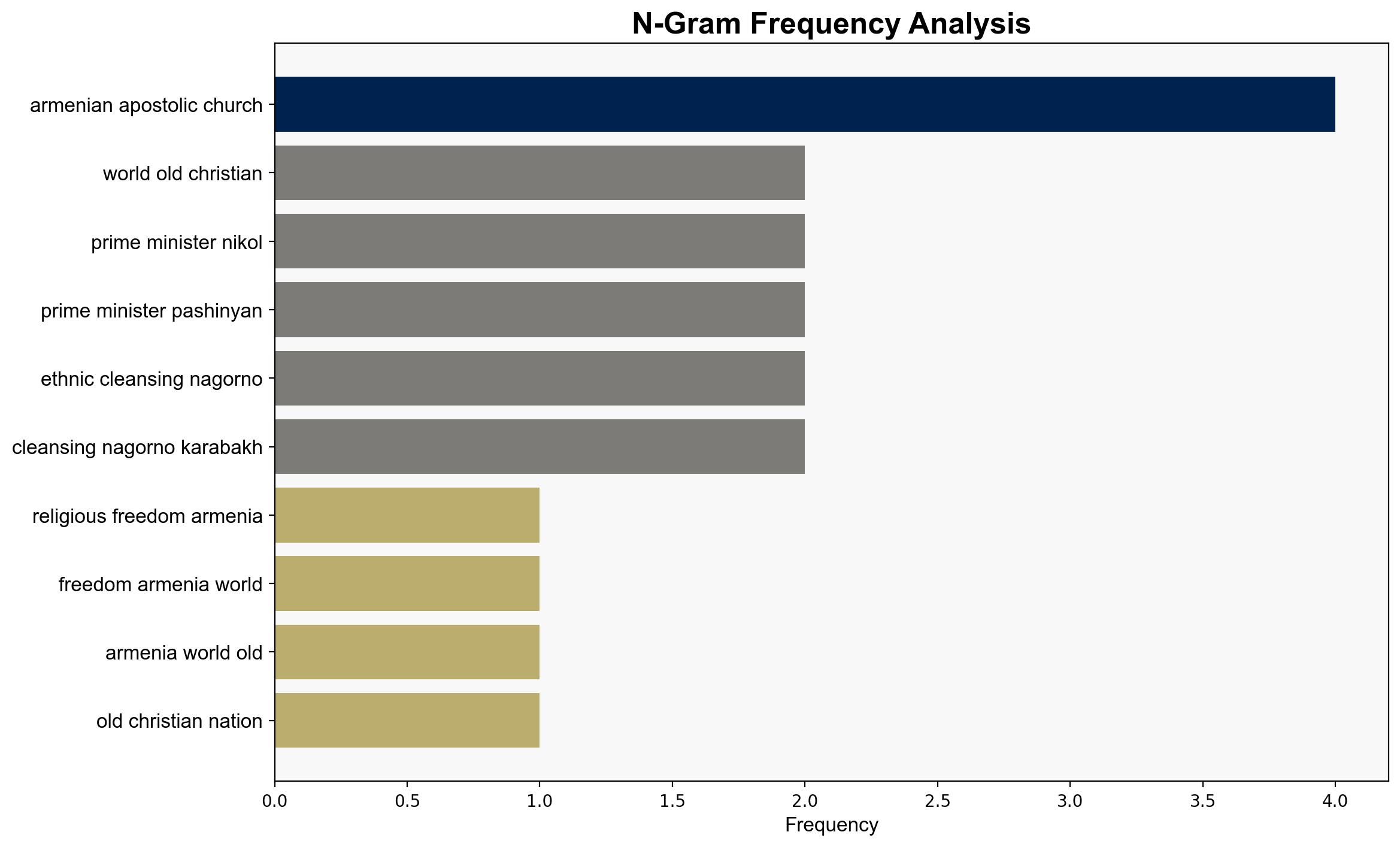Armenia urged to end crackdown on Apostolic Church as global concern grows – Christiantoday.com
Published on: 2025-11-04
Intelligence Report: Armenia urged to end crackdown on Apostolic Church as global concern grows – Christiantoday.com
1. BLUF (Bottom Line Up Front)
The situation in Armenia represents a significant internal conflict with potential international repercussions. The most supported hypothesis suggests that Prime Minister Nikol Pashinyan’s government is actively undermining the Armenian Apostolic Church to consolidate power. Confidence in this assessment is moderate due to the complexity of the political and religious dynamics. Recommended action includes diplomatic engagement and monitoring to prevent further escalation.
2. Competing Hypotheses
1. **Hypothesis A**: The Armenian government, led by Prime Minister Nikol Pashinyan, is intentionally targeting the Armenian Apostolic Church to weaken its influence and consolidate state power ahead of elections.
2. **Hypothesis B**: The actions against the Armenian Apostolic Church are primarily driven by legal and political motivations unrelated to religious suppression, possibly as a response to perceived threats or criticisms from church leaders.
Using the Analysis of Competing Hypotheses (ACH) 2.0, Hypothesis A is better supported by the evidence, including the arrest of senior clergy and the systematic undermining of the church. Hypothesis B lacks substantial evidence to suggest that actions are purely legalistic or apolitical.
3. Key Assumptions and Red Flags
– **Assumptions**: It is assumed that the government’s actions are primarily politically motivated. The assumption that the church’s influence is a direct threat to state power needs further validation.
– **Red Flags**: The absence of direct statements from the government justifying their actions raises questions about transparency. The potential bias in reports from religious organizations and international entities may skew the perception of events.
– **Blind Spots**: Limited information on the internal dynamics within the Armenian Apostolic Church and its political affiliations.
4. Implications and Strategic Risks
– **Domestic Implications**: Increased societal division and potential civil unrest if the conflict escalates.
– **International Implications**: Heightened scrutiny and potential sanctions from international bodies concerned with religious freedom.
– **Strategic Risks**: The erosion of national identity linked to the church could destabilize the government further, especially in the context of the Nagorno-Karabakh conflict aftermath.
5. Recommendations and Outlook
- Engage in diplomatic dialogue with Armenian authorities to advocate for religious freedom and political transparency.
- Monitor the situation for signs of escalation, including increased arrests or international condemnation.
- Scenario Projections:
- **Best Case**: Government and church reach a compromise, reducing tensions.
- **Worst Case**: Escalation leads to civil unrest and international intervention.
- **Most Likely**: Continued tension with periodic international criticism and domestic protests.
6. Key Individuals and Entities
– Nikol Pashinyan
– Mikayel Ajapahyan
– Samvel Karapetyan
– Karekin II
7. Thematic Tags
national security threats, religious freedom, political consolidation, regional focus




